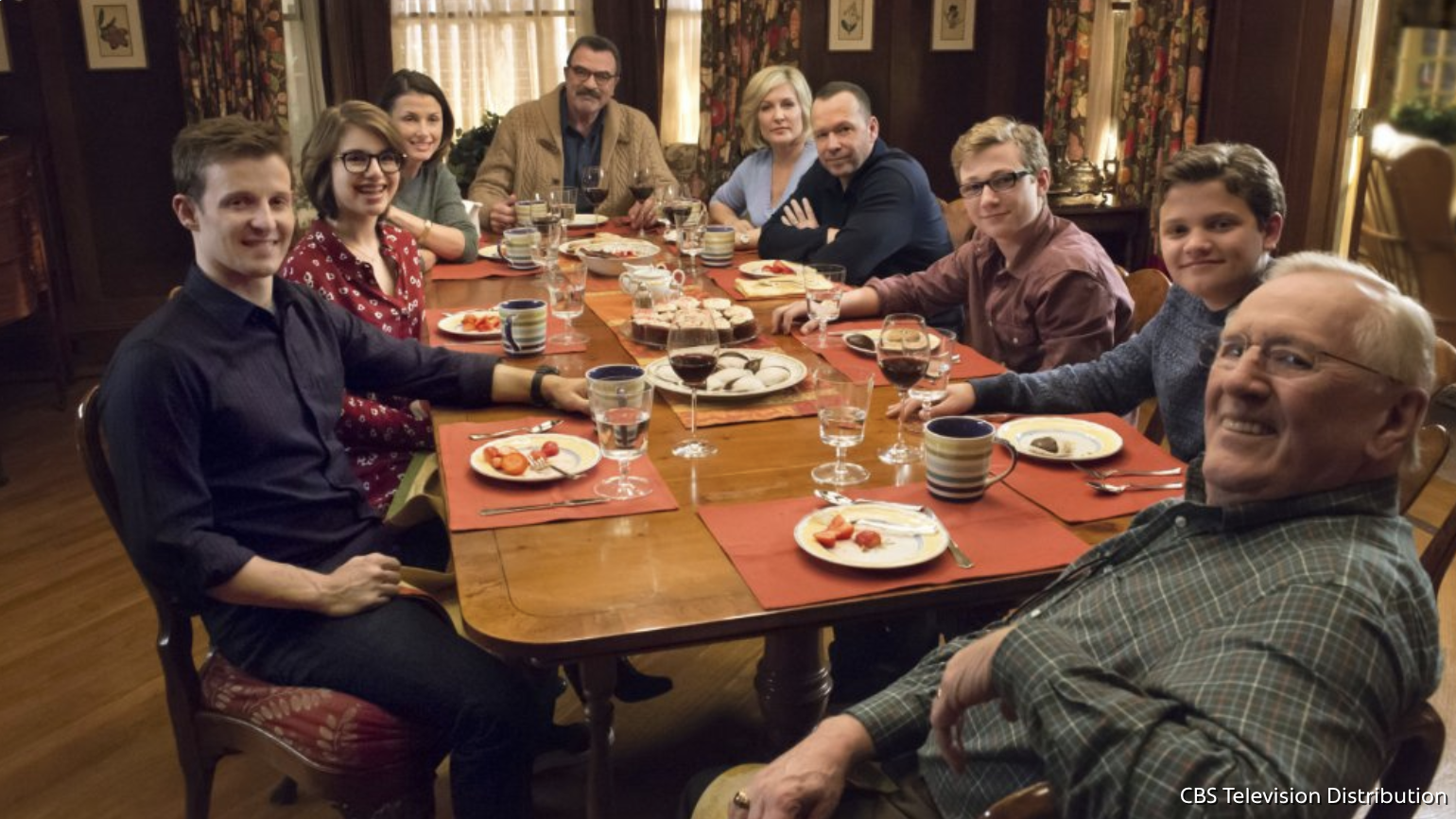
There’s a reason why fans of Blue Bloods stick around, season after season. It’s not just the intense cases, the moral grey zones, or the thrill of justice. It’s not even the fact that we get to watch three generations of cops, lawyers, and public servants try to navigate a changing world. Those things matter — but they’re not what gives the show its soul.
The real heartbeat of Blue Bloods is a dining room table.
It’s wood and worn, lined with familiar faces. Plates full of roast beef. A pot of potatoes. Bread passed down. Tension simmering just beneath the surface. And yet — every week, no matter what’s happened out in the field, the Reagans return here. This is the place where they reconnect. Where they argue. Where they listen. Where they remind each other — and us — of who they really are.
The Ritual That Grounds the Chaos
Every Sunday dinner on Blue Bloods is a kind of ceremony. It’s not formal. There are no grand speeches or perfect lighting. There’s often tension. Sometimes shouting. Often laughter. But always presence. Always family.
In the world of television, especially in a crime procedural, it would have been easy to skip the quiet moments. To jump from crime scene to interrogation room to courtroom and call it a day. But Blue Bloods made a different choice — and it’s that choice that has made all the difference.
From the very first season, the show carved out a space that said: Family matters more than anything else. Not in a preachy, picture-perfect way. But in a messy, real, sometimes painful way. And every week, the Reagan family dinner reminded us of that truth.
More Than a Scene — It’s a Statement
Frank Reagan, played with quiet dignity by Tom Selleck, rarely raises his voice. He doesn’t need to. As Police Commissioner, he carries the weight of the city on his shoulders — but at the table, he’s just Dad. Or Grandpa. He listens more than he speaks. When he does speak, it matters.
Danny (Donnie Wahlberg), the impulsive, emotionally driven detective, often brings fire to the table. He doesn’t always agree with his siblings. He challenges authority — even when it sits across from him. But his passion is born from love, not rebellion.
Erin (Bridget Moynahan) brings the law — and the nuance. As an Assistant District Attorney, she sees the justice system from a different angle, and she’s not afraid to clash with her brothers when their street-level instincts contradict the legal process. She’s sharp, smart, and absolutely necessary.
Jamie (Will Estes), the youngest, often caught between ideals and duty, brings balance. His voice is calmer, but no less firm. He represents the next generation — and the future of the Reagan legacy.
Together, they form a family dynamic that’s full of respect, rivalry, and real emotion. Watching them is like watching your own family — only with higher stakes and better writing.
Why It Hits So Deep
Let’s be honest — we live in a world where people are busier, more distracted, and more disconnected than ever. Sitting down to eat dinner as a family? That feels almost old-fashioned. Maybe even impossible.
But the Reagans do it.
They show up.
Week after week, no matter what. Even when they’ve just arrested a corrupt judge. Even when they’ve argued in the courtroom. Even when they’ve buried a fallen officer. Even when they’re not speaking to each other.
They still sit down.
And in doing so, they send a quiet message: We don’t have to agree to love each other. We just have to show up.
It’s this simple truth that keeps fans coming back. Because in a world that so often feels chaotic and divided, the Reagans give us something steady. Something strong. Something sacred.
Imagine an Episode Without It…
Now imagine this: what if there was an episode of Blue Bloods with no Sunday dinner? No table. No roast. No arguments. No grace said by Henry. Just a blank space where something used to be.
Fans would feel it instantly. Because for all the dramatic cases, police raids, courtroom battles, and backroom politics, it’s the family dinners that ground the show. That remind us what’s at stake. That remind the characters — and the audience — what matters most.
Without the dinner, Blue Bloods would still be a good procedural. But it wouldn’t be special.
It wouldn’t be home.
A Legacy Beyond the Screen
The Reagan dinner table has become iconic. It’s been written about in reviews, discussed in interviews, analyzed by fans. But beyond the analysis, it just feels right. It touches something emotional.
It reminds people of Sunday dinners they used to have with their parents. Of grandparents who kept the family together. Of conversations that were uncomfortable but necessary. Of times they sat across from someone they didn’t agree with — but loved anyway.
That’s why, even after more than a decade, the table still matters. It’s not just a scene. It’s a symbol. A ritual. A promise.
That no matter what happens, the Reagans will find their way back to each other.
And in doing so, they remind us to do the same.
